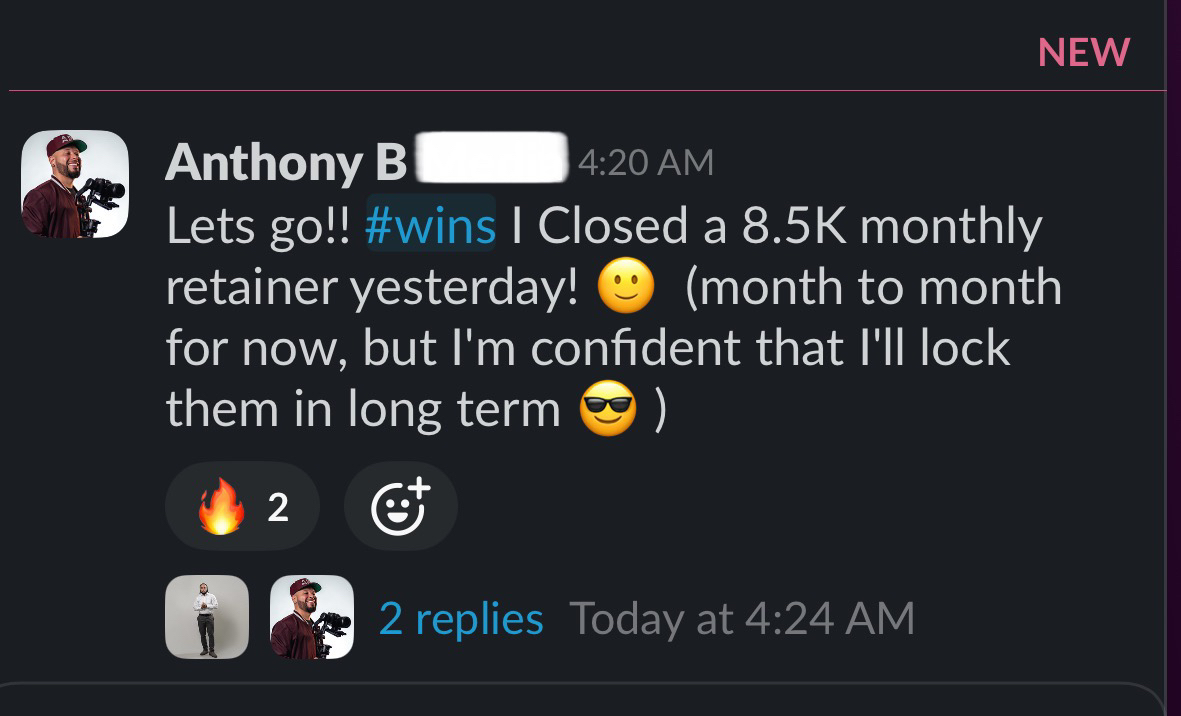
Crafting the Perfect Sales Process for Filmmakers
Introduction:
Sales and filmmaking are an unusual combination, but mastering the art of sales is crucial for any filmmaker looking to thrive in a competitive market. This blog post outlines a sales process specifically tailored for filmmakers, designed to help you attract, engage, and retain clients more effectively.
1. Understanding Your Audience
A. Identify Your Target Market: Understand who your ideal clients are. Are they businesses looking for corporate videos, couples seeking wedding videographers, or brands needing commercials?
B. Tailor Your Approach: Once you know your audience, tailor your marketing and sales approach to their specific needs and preferences.
2. Effective Marketing Strategies
A. Showcase Your Portfolio: Your portfolio is your strongest sales tool. Ensure it's up-to-date, diverse, and showcases your best work.
B. Utilize Social Media: Platforms like Instagram, LinkedIn, and YouTube are powerful tools for reaching potential clients. Regular posts and engagement can significantly boost your visibility.
3. First Contact and Consultation
A. Responsive Communication: Respond promptly to inquiries. First impressions matter, and timely responses can set a positive tone.
B. Consultation: Offer a free initial consultation to discuss potential clients' needs and how your services can meet them.
4. Crafting a Compelling Proposal
A. Personalize Your Proposals: Tailor each proposal to the specific client, highlighting how your services can address their unique needs.
B. Clear Pricing and Packages: Be transparent and clear about your pricing and what each package includes.
5. Effective Communication and Follow-Up
A. Regular Updates: Keep your clients informed throughout the sales process. Regular updates can build trust and show professionalism.
B. Follow-Up: After sending a proposal, follow up within a few days. This shows your interest in working with them and can prompt a decision.
6. Negotiation and Closing the Deal
A. Be Open to Negotiation: Be prepared to negotiate on aspects like price, timelines, and deliverables while maintaining your boundaries and value.
B. Closing: Once you reach an agreement, close the deal professionally. Provide a clear contract and outline the next steps.
7. Project Execution
A. Deliver on Promises: Ensure you meet the agreed-upon deadlines and quality standards.
B. Communication: Maintain open lines of communication throughout the project.
8. Building Long-Term Relationships
A. Request Feedback: After project completion, ask for feedback. This can provide valuable insights and show that you value their opinion.
B. Keep in Touch: Even after the project, keep in touch with clients. They could be a source of repeat business or referrals.
9. Seeking Referrals and Testimonials
A. Ask for Referrals: Satisfied clients are often happy to refer others.
B. Testimonials: Request testimonials to use in your marketing materials.
Conclusion
The perfect sales process for filmmakers involves understanding your audience, effective marketing, responsive communication, personalized proposals, and maintaining long-term relationships. By refining your sales approach, you can not only increase your client base but also build a reputation for reliability and quality in the filmmaking industry. Remember, each interaction is an opportunity to showcase your professionalism and passion for filmmaking.